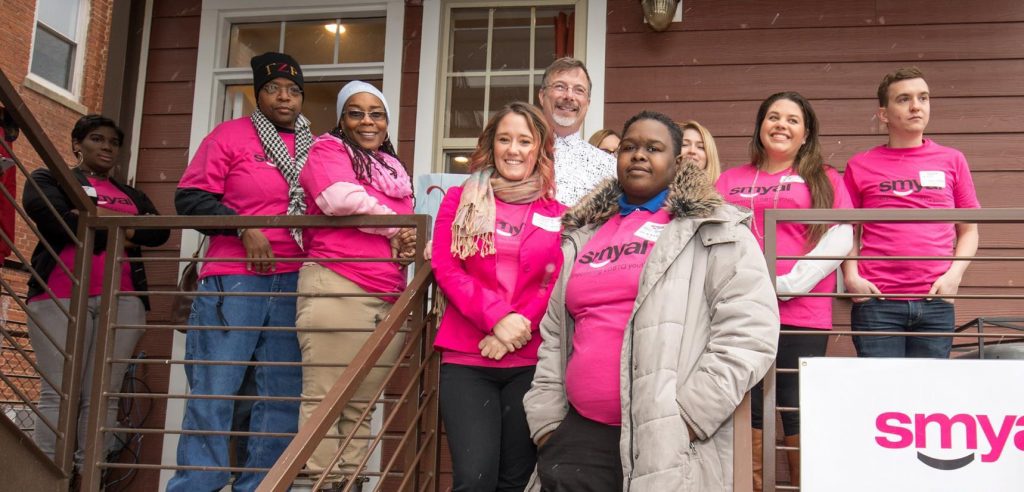Residents can attend life skills courses and community engagement opportunities including nutrition and cooking classes, financial literacy, healthy relationships and communication, and resume workshops.
Entry into SMYAL’s Transitional Housing, Extended Transitional Housing, and Rapid Re-Housing Programs are part of the District of Columbia Coordinated Entry System. Anyone interested in accessing affirming housing services, please contact the SMYAL Youth House office at 202-617-5492 or e-mail [email protected].
If you are a youth seeking emergency housing, click here.
In Washington, D.C., nearly 40% of homeless youth identify as LGBTQ. SMYAL’s Youth Housing Program works to address this disparity and understand that while each resident has experienced homelessness, no two experiences are the same.
That’s why SMYAL centers the unique needs of LGBTQ youth experiencing homelessness and tailors support to every resident to them reach their individual goals in each of our programs:
At SMYAL, we know that shelter alone doesn’t end homelessness. That’s why our program takes a comprehensive approach to meet the needs of the youth we serve. The program works to identify the specific and develop a youth-driven plan to meet those needs.
In addition to housing, youth receive personalized case management, financial resources for food, travel and incidentals, and tailored life skills programming focused on developing the tools and skills needed for independence . The program is coordinated through these five key areas of support:

Youth will communicate with their case manager for 12 months after completion of program, with longer term case management provided if needed.
After coming out to family and friends about his sexual orientation, Tye experienced family rejection at age 17. Before joining the program, he often slept in his friend’s car, even during cold and severe weather. Tye stored his personal items in a metro station and washed up for work in the bathroom of a fast food chain. Tye is a hard worker and held employment, but his hourly rate and number of hours each week were never enough to get ahead. While he was able to feed himself without support from his family, he was left with no money or time to meet his other personal care needs. After three months in the Youth Housing Program, Tye gained full-time employment with benefits, putting him in a position to move towards his goal of becoming an independent young adult with permanent housing. A year later, Tye successfully graduated from the program and into his own apartment as a self-sufficient young adult.
© 2021 SMYAL | 410 7th Street SE, Washington, DC 20003 | 202.546.5940 | [email protected] | Accessibility Policy